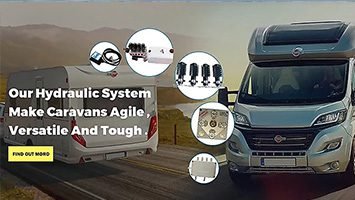Recreational Vehicles: The Ultimate Guide
In recent years, RV (Recreational Vehicles) travel has surged in popularity, offering a unique blend of freedom and adventure to travelers. From exploring the vast landscapes of national parks to enjoying a cozy night under the stars, RVs provide a versatile and comfortable way to experience the great outdoors. This guide will delve into the various features and components of RVs, as well as their advantages and disadvantages, helping you make an informed decision about whether an RV is right for you.
Understanding Recreational Vehicles (RVs)
What is an RV?
An RV, or Recreational Vehicle, is a motor vehicle or trailer equipped with living space and amenities for recreational activities. RVs are designed to provide comfort and convenience while traveling, combining the benefits of a vehicle with the amenities of a home. They come in various types and sizes, catering to different preferences and needs.
Key Components of RVs
Chassis and Engine
The chassis serves as the foundation of a motorhome, supporting the engine and drivetrain. RVs can be built on various chassis types, including those of standard trucks or custom-designed chassis. The engine’s performance affects the RV’s towing capacity and fuel efficiency.
Living Area
The living area is the heart of any RV, designed to offer comfort and relaxation. It typically includes:
Seating: Comfortable chairs, sofas, or dinettes, often convertible into beds.
Table: A dining table for meals and socializing.
Entertainment Systems: TVs, stereo systems, and sometimes DVD players or gaming consoles.
Kitchen
The kitchen in an RV is a compact but fully functional space, including:
Stove and Oven: For cooking meals.
Refrigerator: To store food and beverages.
Sink: For washing dishes and food prep.
Storage: Cabinets and drawers for kitchen essentials.
Bathroom
Most RVs feature a bathroom with:
Toilet: Usually a flush toilet.
Shower: A small, enclosed space for bathing.
Sink: For personal hygiene.
Bedroom
The bedroom area varies in size and configuration, often featuring:
Bed: A fixed or convertible bed.
Storage: Wardrobes, drawers, and overhead compartments.
Power Systems
RV power systems include:
Batteries: For powering electrical systems when not plugged into an external source.
Generator: To provide power when off-grid.
Solar Panels: Increasingly popular for eco-friendly power generation.
Climate Control
For comfort in various weather conditions, RVs are equipped with:
Air Conditioning: Essential for hot climates.
Heating Systems: For cold weather, including propane heaters or electric systems.
Storage
RVs provide various storage solutions:
Exterior Storage Compartments: For larger items like camping gear.
Interior Cabinets and Drawers: For everyday necessities.
Stabilizer Jacks and Hydraulic Cylinders
Stabilizer jacks and hydraulic cylinders are crucial components for ensuring RV stability.
Stabilizer Jacks: These are adjustable supports placed at the corners of the RV to prevent movement and reduce swaying. They help stabilize the RV when parked on uneven surfaces.
Hydraulic Cylinders: These are part of the hydraulic system used in some RVs to extend or retract the stabilizer jacks. They provide smooth and efficient adjustment of the RV’s height and level, ensuring a stable and secure setup.
Benefits of RV Travel
Flexibility and Freedom
One of the greatest advantages of RV travel is the freedom it offers. With an RV, you can travel at your own pace, choose your destinations, and make spontaneous changes to your plans. This flexibility allows you to explore off-the-beaten-path locations and enjoy a more personalized travel experience.
Comfort and Convenience
RVs provide home-like amenities on the road, ensuring a comfortable living experience. Features such as fully equipped kitchens, bathrooms, and cozy beds allow you to enjoy the comforts of home while traveling. Additionally, RVs offer protection from the elements, making travel comfortable in various weather conditions.
Cost-Effective Travel
Although purchasing an RV involves a significant initial investment, it can be cost-effective over time. RV travel reduces the need for expensive hotel accommodations and dining out, as you have your own living space and kitchen. Many RV owners find that their overall travel expenses decrease compared to traditional vacations.
Connection with Nature
RVs offer a unique way to connect with nature and experience outdoor living. Camping in scenic locations, enjoying outdoor activities, and waking up to beautiful views right outside your door can be both refreshing and rejuvenating.
Family and Social Bonding
Traveling in an RV creates opportunities for family and friends to bond. The shared space and communal activities foster togetherness and create lasting memories. Whether you’re exploring new destinations or relaxing at a campsite, RV travel encourages quality time with loved ones.
Drawbacks of RV Travel
Initial Cost and Maintenance
The initial cost of purchasing an RV can be substantial, with prices varying based on type, size, and features. Additionally, RVs require ongoing maintenance, including regular servicing, repairs, and upkeep of various systems. These costs should be factored into the overall expense of RV ownership.
Fuel and Towing Costs
RVs, especially larger models, can be fuel-intensive, leading to higher travel expenses. Towing a travel trailer also impacts fuel efficiency and may require a suitable vehicle with adequate towing capacity. Budgeting for fuel and maintenance is essential for managing RV travel costs.
Size and Maneuverability
The size of an RV can present challenges in terms of maneuverability and parking. Larger RVs may be difficult to navigate through narrow roads or tight spaces, and finding suitable parking or camping spots can be challenging. Smaller RVs and travel trailers offer more flexibility but may have less living space.
Limited Space and Amenities
Despite the numerous features included in RVs, space is limited compared to a traditional home. This can be challenging for families or groups traveling together. Additionally, while RVs are equipped with essential amenities, they may lack the luxury or extensive features found in larger homes.
Maintenance and Repairs
Like any vehicle, RVs require regular maintenance and occasional repairs. From plumbing issues to electrical system malfunctions, RV owners must be prepared for the possibility of breakdowns or maintenance needs. Understanding RV maintenance or having access to professional services is crucial for a smooth travel experience.
Recreational Vehicles offer an exciting and unique way to travel, combining the freedom of the open road with the comforts of home. With various types and sizes to choose from, RVs cater to a wide range of preferences and travel styles. Understanding the key components, including stabilizer jacks and hydraulic cylinders, as well as the benefits and drawbacks of RV ownership, can help you make an informed decision and fully enjoy your travel adventures.
Whether you’re seeking flexibility, comfort, or a deeper connection with nature, RV travel presents an opportunity to explore the world on your own terms. As you consider the pros and cons, evaluate your travel goals, lifestyle, and budget to determine if an RV is the right choice for you. Embrace the adventure and discover the endless possibilities that come with hitting the road in your own recreational vehicle!


